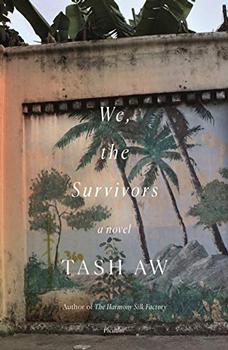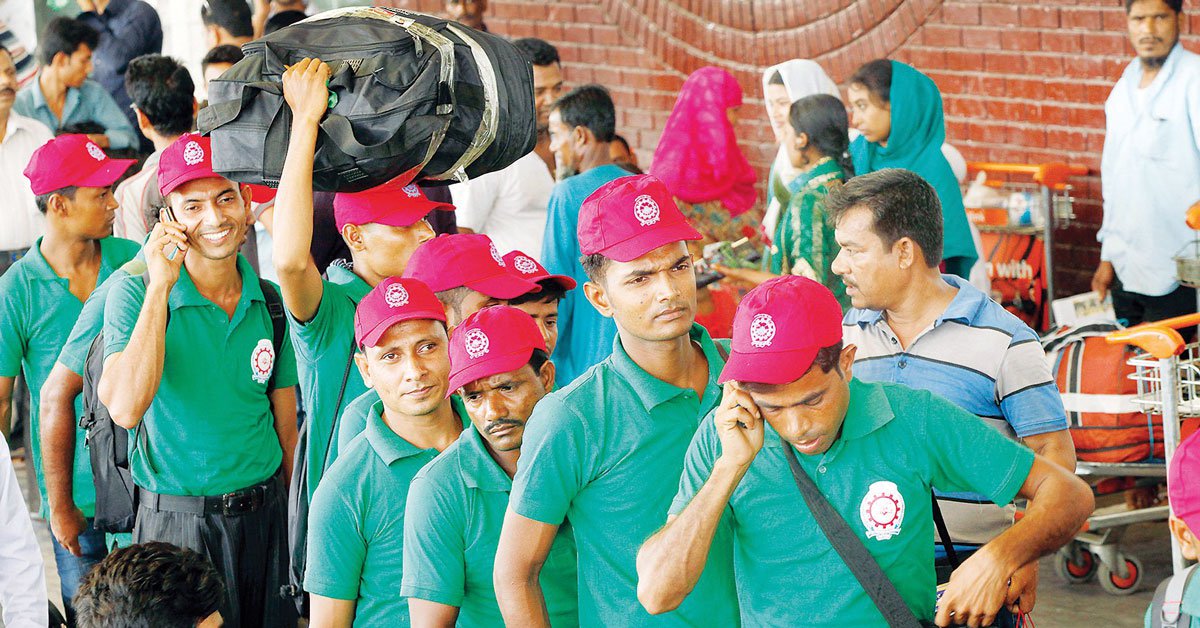Summary | Excerpt | Reviews | Beyond the Book | Read-Alikes | Genres & Themes | Author Bio

This article relates to We, the Survivors
 Tash Ah's We, the Survivors is centered around a Malaysian man who has recently been released from prison, where he served time for murdering a Bangladeshi migrant worker.
Tash Ah's We, the Survivors is centered around a Malaysian man who has recently been released from prison, where he served time for murdering a Bangladeshi migrant worker.
Malaysia and Bangladesh are two Southeast Asian countries that have enjoyed a long and mostly amicable history; records show that Bengalis (native to Bangladesh) settled in Malaysia as early as the 15th century, and according to Bangladeshi politician Salahuddin Ahmed in his book Bangladesh: Past and Present, Malaysia was one of the first countries to recognize the independence of Bangladesh in 1972. A trade report issued by the Bangladeshi government in 2012 declared that trade between the two countries was valued at $1.2 billion USD, and according to a report by the Asian Tribune, Malaysia is currently the largest Asian investor in Bangladesh.
But solid economic relations aside, strain between these two countries has arisen in the form of a significant population of migrant workers, necessitated by Malaysia's recent industrial growth. The first migrant workers from Bangladesh – a group of around 500 – arrived in Malaysia in the 1980s to work on plantations, and in the 1990s, an agreement was reached between the two countries legalizing routine manpower exportation. Though reports of the total number of Bangladeshi living in Malaysia vary widely, it's estimated that there are at least 200,000, comprising one eighth of Malaysia's foreign workforce.
 In 2007, a temporary ban was placed on the importation of Bangladeshi workers after hundreds of individuals were stranded at an airport when their employers failed to collect them. Between 2009 and 2012, there was an embargo on the importation of Bangladeshi migrants, naturally leading to an upturn in illegal immigrants. Between January and June of 2019, the Malaysian Immigration Department detained over 5,000 undocumented Bangladeshi migrant workers. However, in August 2019, steps were taken to mitigate the illegal immigration crisis, as the Malaysian home ministry launched an amnesty program for undocumented migrants, wherein migrants will be allowed to pay a fee in exchange for legal documentation. The program ended in December 2019, at which point 110,000 undocumented migrants (including over 30,000 Bangladeshi) voluntarily left the country.
In 2007, a temporary ban was placed on the importation of Bangladeshi workers after hundreds of individuals were stranded at an airport when their employers failed to collect them. Between 2009 and 2012, there was an embargo on the importation of Bangladeshi migrants, naturally leading to an upturn in illegal immigrants. Between January and June of 2019, the Malaysian Immigration Department detained over 5,000 undocumented Bangladeshi migrant workers. However, in August 2019, steps were taken to mitigate the illegal immigration crisis, as the Malaysian home ministry launched an amnesty program for undocumented migrants, wherein migrants will be allowed to pay a fee in exchange for legal documentation. The program ended in December 2019, at which point 110,000 undocumented migrants (including over 30,000 Bangladeshi) voluntarily left the country.
The question of living conditions for migrants in Malaysia is also a fraught one. According to a 2014 study by scholars Mahfuzur Rahman, Md. Shah Jalal Uddin, and Mohamed Albaity, 81 percent of Bangladeshi migrant workers send their earnings home to their families, and many of the study's participants reported living in small apartments with numerous residents, along with subpar working conditions.
Crime has reportedly skyrocketed in Malaysia since the ban on Bangladeshi migrants was lifted. Reports of rape and theft in particular have been on the rise. However, there is a certain amount of fearmongering that goes into these reports. Sociologist Petra Dannecker has documented the phenomenon in which a nation will open its doors to migrant workers, only to scapegoat them for all social problems. Malaysian news reports also corroborate this theory; a statement issued by the Malaysian government in 2013 reports that only one percent of recorded crime in the country is by foreigners, and a World Bank report from the same year found no correlation between crime and immigration rates.
As always where immigration is concerned, negotiations between the two governments are never simple and, for individuals, can lead to social unrest and exploitative work conditions, as tensions between nations and individuals escalate in tandem. In his fourth novel, Tash Aw explores the social relations between Malaysian workers and Bangladeshi migrants, which in the case of the protagonist Ah Hock, leads to a tragic conclusion.
Map of Asia, courtesy of Lonely Planet
Bangladeshi migrant workers at Hazrat International Airport, courtesy of Dhaka Tribune
Filed under Society and Politics
![]() This "beyond the book article" relates to We, the Survivors. It originally ran in September 2019 and has been updated for the
September 2020 paperback edition.
Go to magazine.
This "beyond the book article" relates to We, the Survivors. It originally ran in September 2019 and has been updated for the
September 2020 paperback edition.
Go to magazine.
Don't join the book burners. Don't think you are going to conceal faults by concealing evidence that they ever ...
Click Here to find out who said this, as well as discovering other famous literary quotes!
Your guide toexceptional books
BookBrowse seeks out and recommends the best in contemporary fiction and nonfiction—books that not only engage and entertain but also deepen our understanding of ourselves and the world around us.